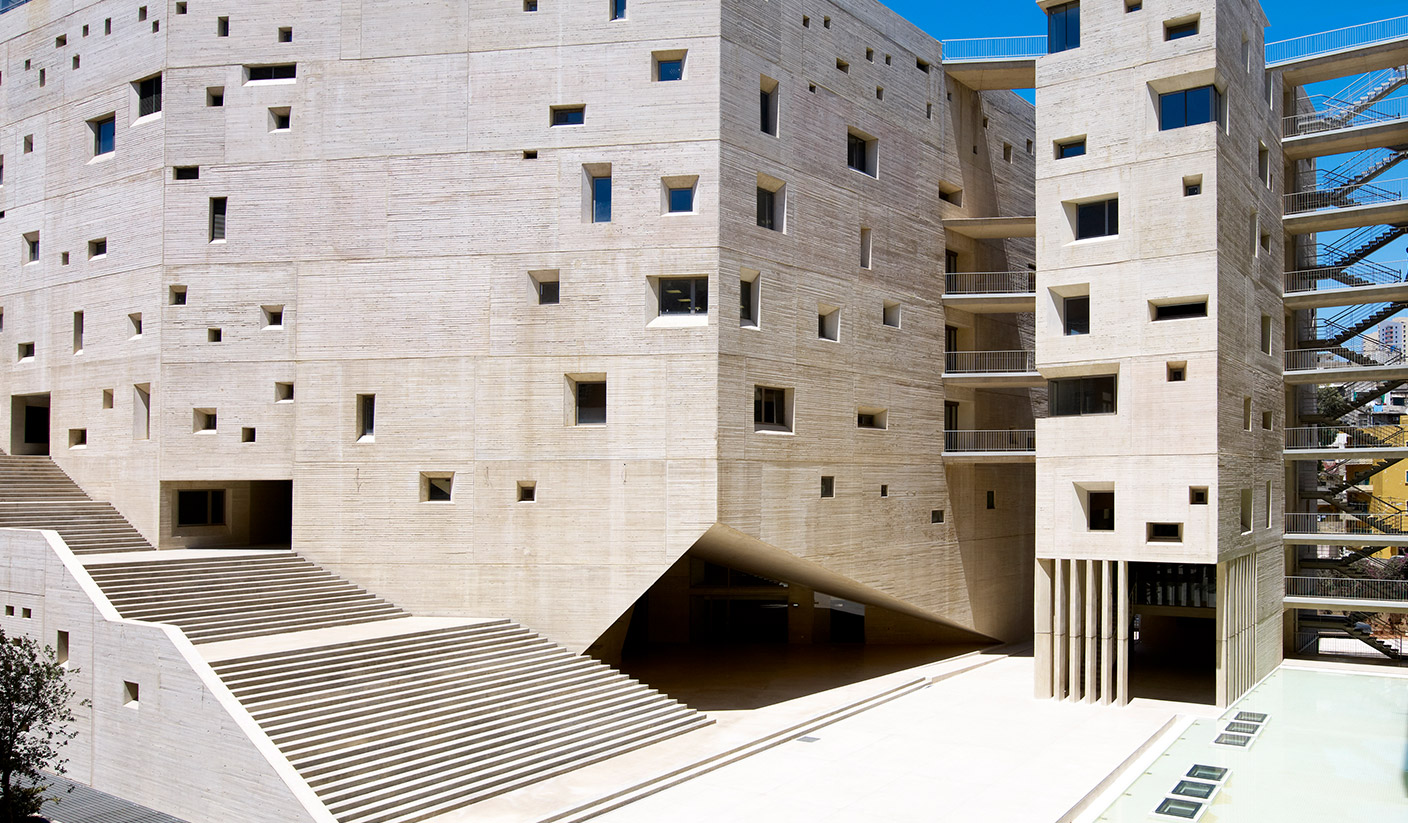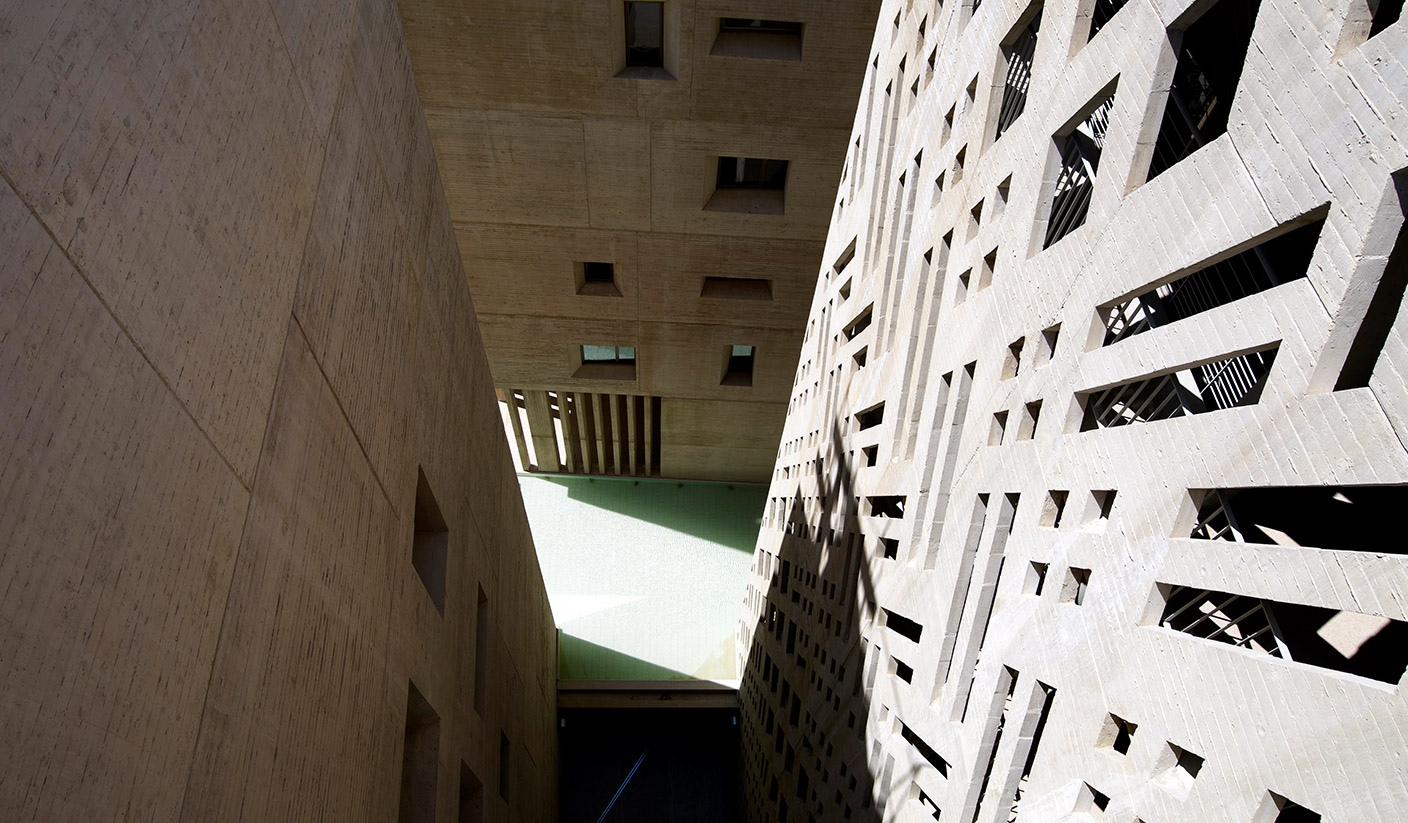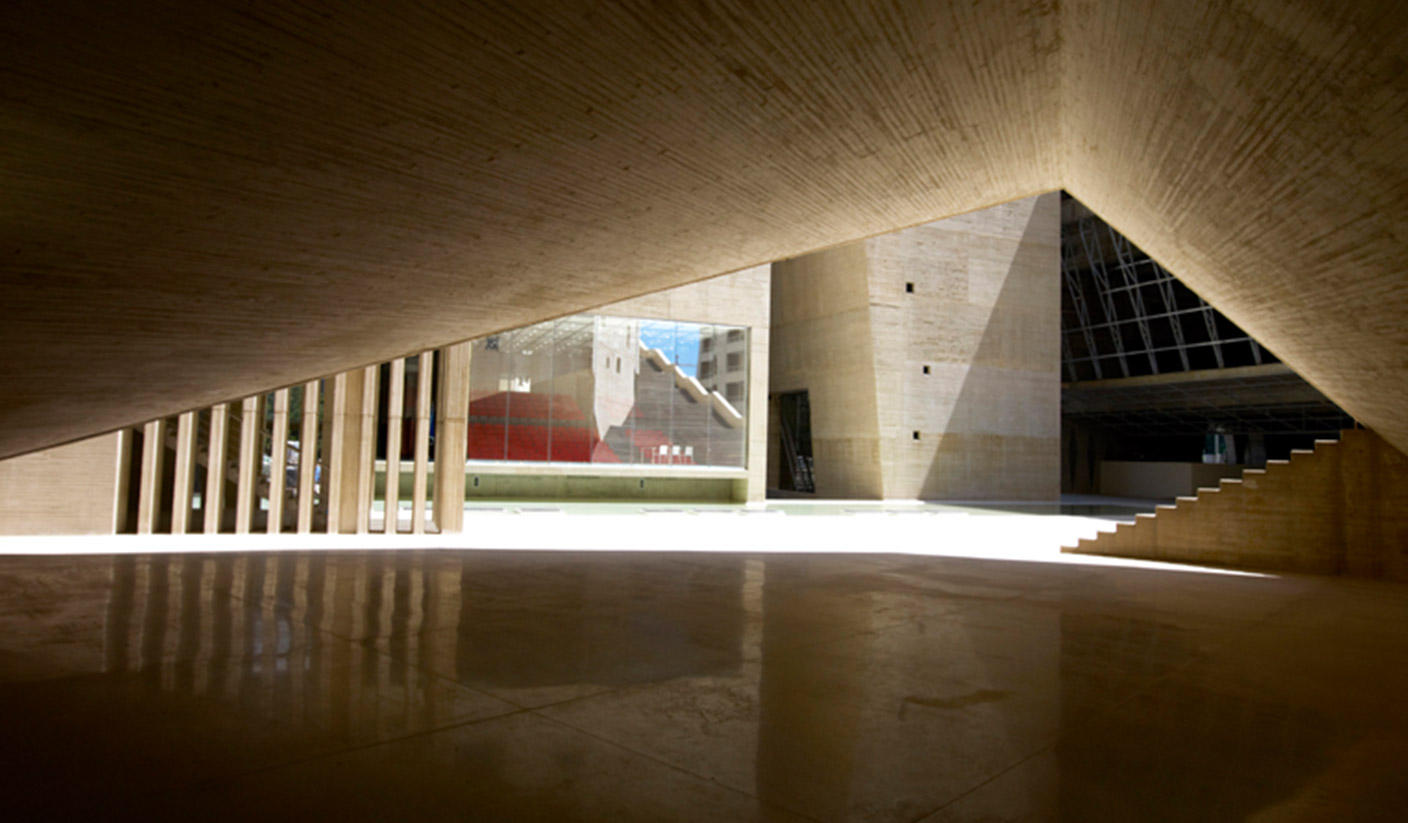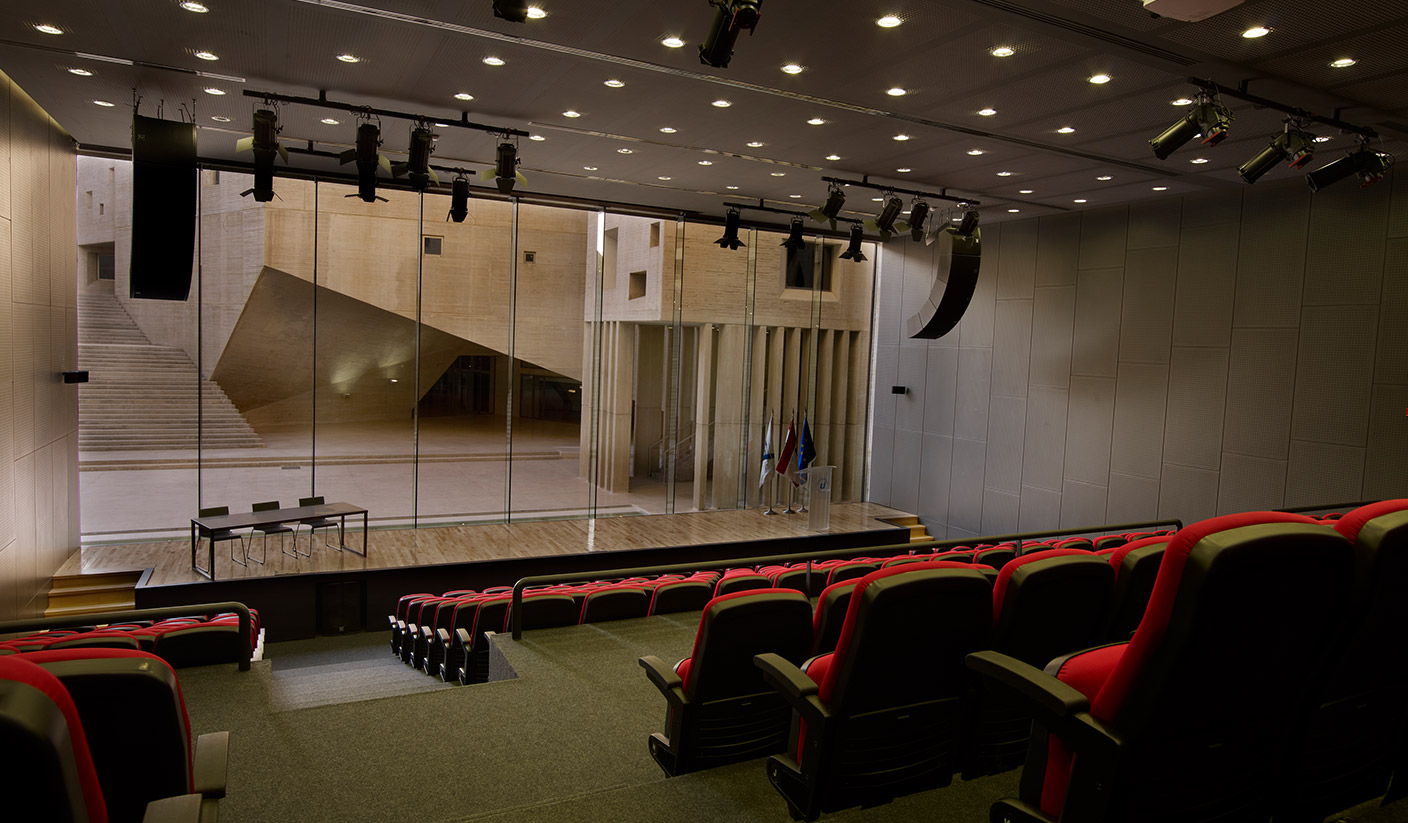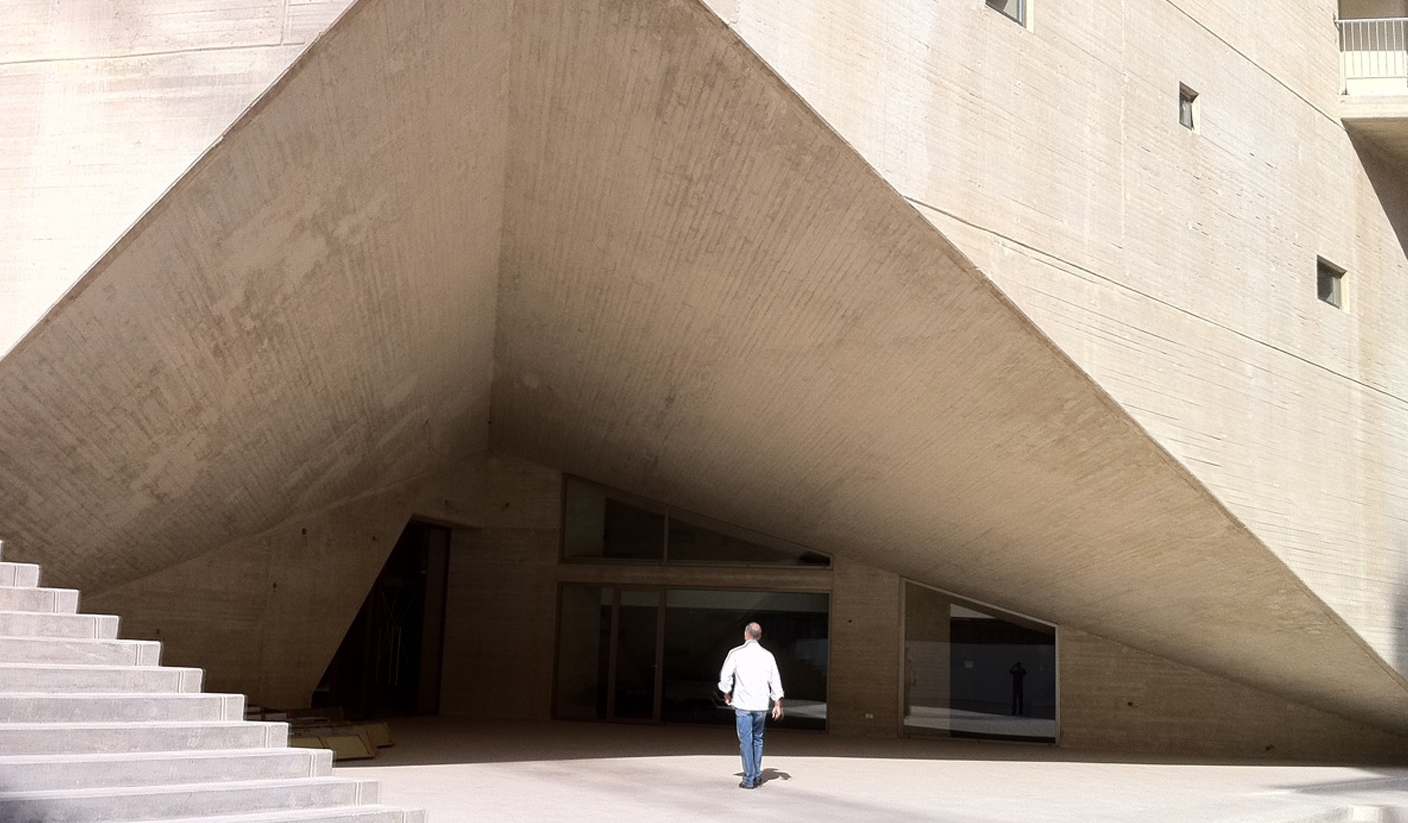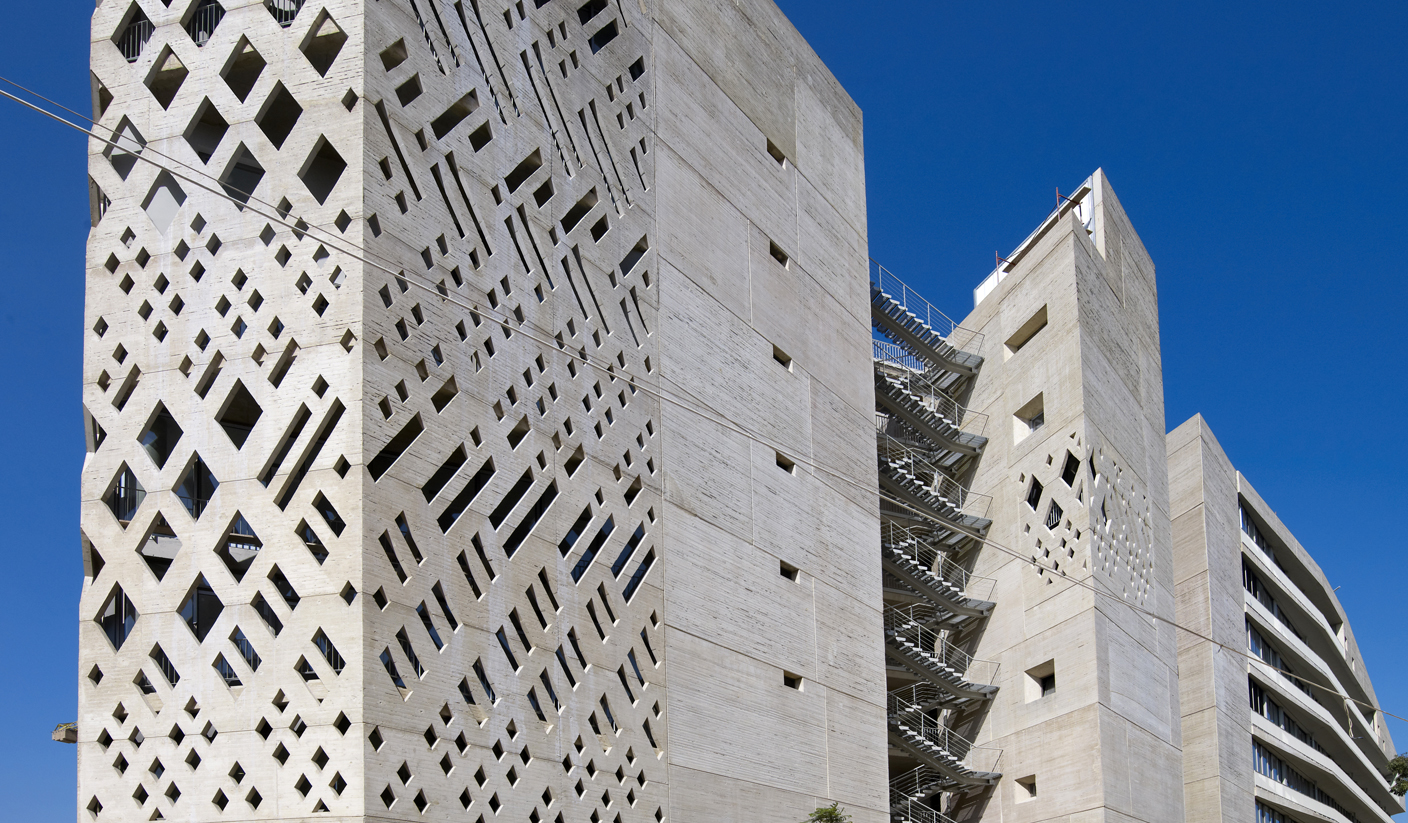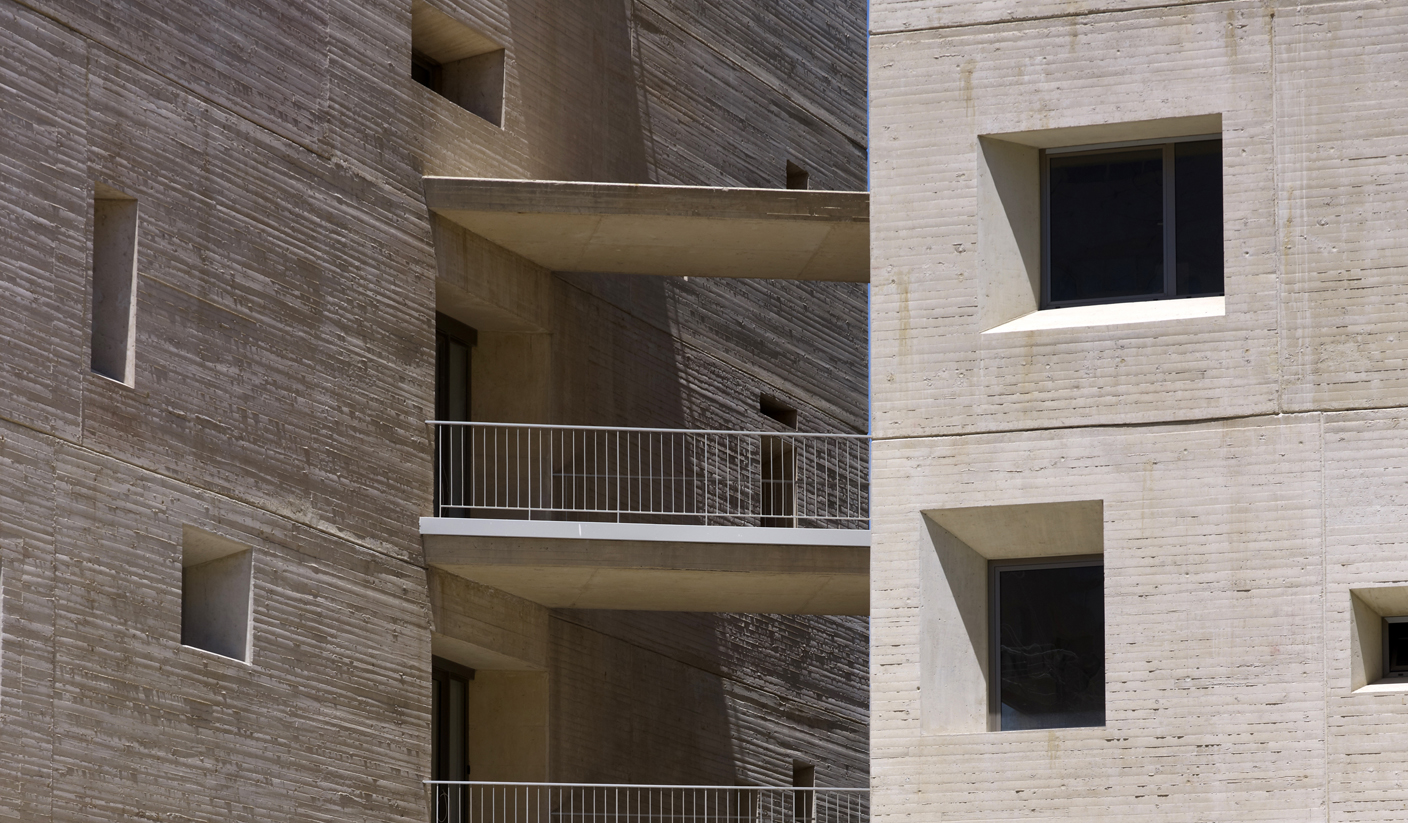Fact Sheet
- Project: USJ Campus de l’Innovation et du Sport
- Category: Educational
- Location: Beirut, Lebanon
- Client: Université Saint-Joseph (USJ)
- Built-up area: 55,000 sqm
- Budget: 33M USD
- Year: 2005-2011
- Status: Completed
Credits
- Partner in Charge: Michel Georr & Ibrahim Berberi
- Architect in Charge: Nada Assaf
- Team: Rani Boustani, Etienne Nassar, Emile Khayat, Naja Chidiac, Richard Kassab
Collaborators
- In collaboration with: Architecture: Youssef Tohme | Structural Consultant: B.E.T. Rodolphe Mattar |Mechanical Consultant: Ibrahim Mounayar | Electrical Consultant: Georges Chamoun | Control Bureau: Apave | Photos: Albert Saikaly, Roland Ragi
- Renders: Patrick Helou
Located on what was previously known as the Beirut Green Line, this new campus takes a contextual approach, integrating physically, culturally, and also historically with Beirut’s existing urban tissue.
This project was designed alongside Youssef Tohme.
Conceptually an urban block with sculpted voids, the building’s hollow spaces define six autonomous blocks and construct multiple viewpoints across Beirut, connecting students to their dynamic setting. The voids also generate a street-level meeting space, which flows fluidly to the top floor in the form of a massive staircase. It concludes at a landscaped terrace overlooking the city. Light is a vital element in oriental architecture and one that shapes its style and identity; the campus exposes alternate light qualities through Moucharabieh-inspired perforations and a polycarbonate volume. Such manipulation presents a striking contrast in filtered light and luminescence. A stylized random-opening treatment is a snapshot of the Lebanese War, lending a poetic glimpse into the reality of destruction and violence.
Conceptually an urban block with sculpted voids, the building’s hollow spaces define six autonomous blocks and construct multiple viewpoints across Beirut, connecting students to their dynamic setting. The voids also generate a street-level meeting space, which flows fluidly to the top floor in the form of a massive staircase. It concludes at a landscaped terrace overlooking the city. Light is a vital element in oriental architecture and one that shapes its style and identity; the campus exposes alternate light qualities through Moucharabieh-inspired perforations and a polycarbonate volume. Such manipulation presents a striking contrast in filtered light and luminescence. A stylized random-opening treatment is a snapshot of the Lebanese War, lending a poetic glimpse into the reality of destruction and violence.

